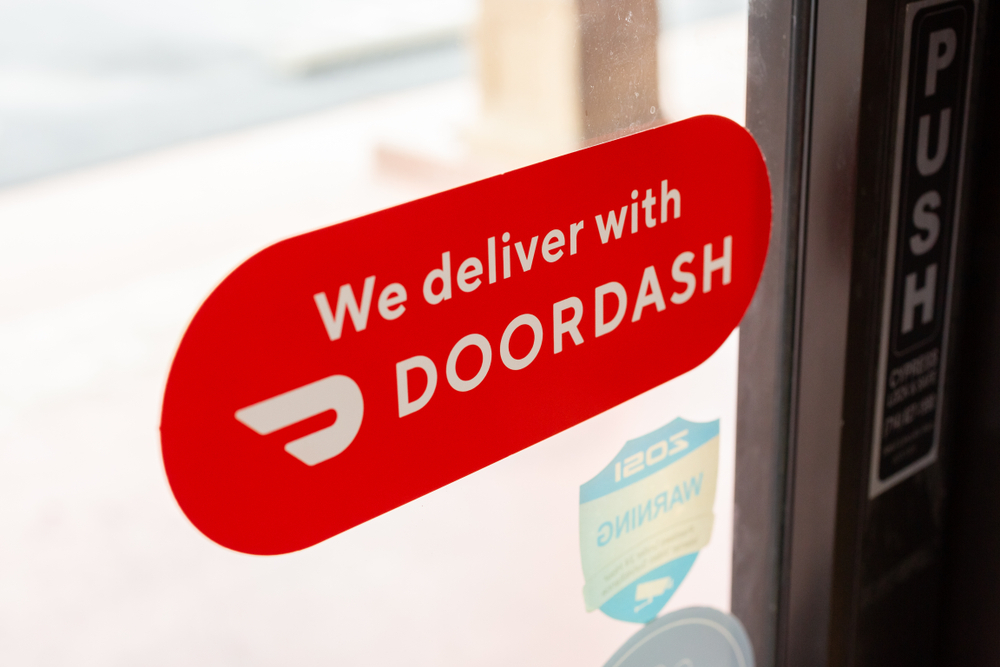Do you want your food delivery driver circling the block looking for parking while your favourite hot snack gets cold? Or worse, having to use what they just earned to pay parking tickets?
The union that partners with couriers doesn’t think so.
That’s why on top of calling for fair wages and safe working conditions for app-based delivery drivers in B.C., couriers and United Food and Commercial Workers are also setting their efforts on securing free, short-term parking.
Last week UFCW Local 1518 called on five large B.C. municipalities to explore various options for protecting delivery drivers from parking tickets on the job.
President Kim Novak says providing a time limit of five to 15 minutes would support delivery drivers and ensure parking turnover is maintained.
While the union doesn’t formally represent these workers, it has engaged with at least 1,500 couriers in B.C. over the past year, according to Parm Kahlon, UFCW 1518’s managing director.
Most of them work with major food delivery apps such as Uber Eats, Skip the Dishes and DoorDash, though there are also some smaller companies involved.
According to both the union and drivers, the challenge around access to parking has been a common complaint.
“If you do a food delivery job, it is very stressful to find parking spaces,” said Rahul Syal, a part-time DoorDash courier working mainly in Burnaby and East Vancouver.
Syal, who started working courier gigs in 2015, says there has been a significant increase in the number of delivery apps and drivers, especially during the pandemic. This, they noted, has exacerbated the struggle for parking spots.
And it can really eat into their bottom line, which is already lagging.
Last year, Syal racked up two parking tickets in a month — a $130 dent that nearly wiped out a week’s worth of pay, even before they factored in gas and other costs. This issue can reduce their income indirectly too, since Syal avoids accepting orders in areas that they know lack accessible parking spots.
“If I receive anything from Central Boulevard or Main Street, from the 2000 to 5000 block, I would never accept those orders,” Syal said.
Lack of parking can also create a dangerous environment, Novak adds. She says since parking farther away from destinations can cause delays and impact couriers’ ratings, some drivers have felt forced to double park.
And it’s not just a B.C. concern.
“This is something that is happening across Canada and the U.S., especially as the platform becomes more concentrated with more drivers,” Novak said.
Taryn Ellis, who has accumulated approximately $500 in parking tickets while working as a food courier in Toronto, started a petition in February urging the city to create grace periods or business parking permits for couriers. Since then, the petition has received close to 1,000 signatures.
So far, UFCW 1518 has sent letters outlining the request for short-term parking options to Vancouver, Burnaby, New Westminster, Victoria and Kelowna.
When reached for comment, some cities’ officials said they already have programs that can help ease the access to parking for delivery drivers.
For example, the City of Kelowna allows businesses to put up signs for five-minute temporary parking zones to help with delivery pickup.
Dave Duncan, Kelowna’s parking services manager, said the program has been active since last spring, with 15 signs installed, and it will only be discontinued when “things return to normal.”
The City of Victoria has an annual permit program that allows commercial vehicles to park at 20-minute meters and commercial loading zones while unloading or loading. The annual fee is $100 for a typical vehicle.
Meanwhile, a City of Vancouver staffer told The Tyee that it has installed 43 “room 2 loading zones” — short-term commercial loading zones near businesses with high turnover — in response to the pandemic.
“They were intended to be short term, however, they can become permanent if the need persists post-pandemic,” they added.
But more may be needed, as Syal said they personally have not seen and were not aware of these new zones.
Novak said this initiative is a good start but points out the spots are still open to everyone. She advocates for creating permits or spaces specifically for app-based delivery drivers, because “they are doing this for a living.”
In general, municipalities indicated they have not had enough time to consider and respond to the union’s request.
UFCW 1518 also addressed its letters to elected officials in B.C., but the provincial government is deferring the conversation to the municipalities.
Ultimately, Novak said the need to support app-based delivery workers will only continue to grow.
“We can all recognize that these companies aren’t going anywhere. In fact, people are relying more on them,” she said.
“So being able to bring these types of parking spaces and identifying different ways that we can support workers in these industries, especially during this time, is something that will likely grow going forward. That’s why now is the time we decided to really push for it.” ![]()
Read more: Food, Municipal Politics
















Tyee Commenting Guidelines
Comments that violate guidelines risk being deleted, and violations may result in a temporary or permanent user ban. Maintain the spirit of good conversation to stay in the discussion.
*Please note The Tyee is not a forum for spreading misinformation about COVID-19, denying its existence or minimizing its risk to public health.
Do:
Do not: